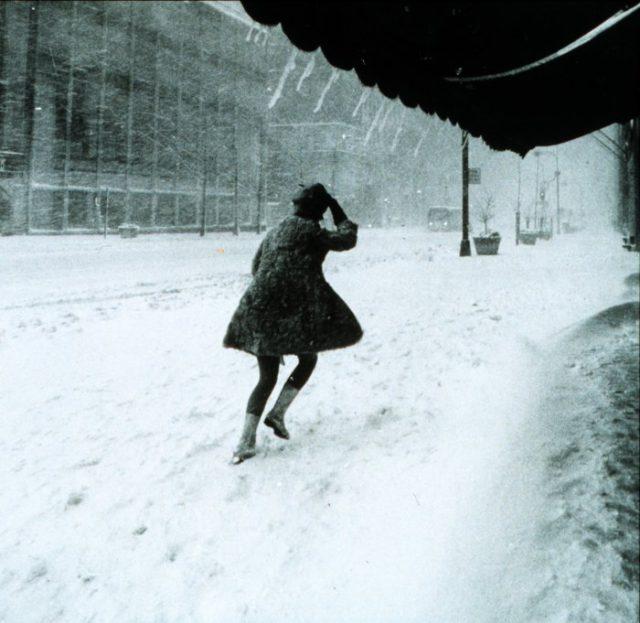
As China and Australia are demonstrating, icy periods between nations are difficult and challenging. Even dangerous.
Yet along with the perils of thrills and spills, chills are illuminating.
The icy age disrupts the usual rhythms. Protocol ices and normal transactions slow. Australian ministers aren’t getting invites to visit China and the annual Australia Week business expo in China ‘looks certain to be abandoned’.
The reality of the push, pull and power plays is revealed.
Differences have to be discussed, if not resolved. Dispute, not agreement, is to the fore and must be dealt with as the temperature drops.
Icy ages seldom get to a catharsis—as long as catastrophe is avoided, a rethink has its uses.
Australia and China are in the fifth significant icy period in 70 years. The history of the four previous ages is here.
The icy age demands a rethink. Even after the ‘let’s move on’ moment is reached (agree to disagree or do a deal) the chill influences the future trajectory. Such periods force a reset.
The reset option is available because governments that throw the switch to cold can recalibrate to warmer settings. That’s the positive read from history. This time, though, the domestic dimensions of the China–Oz wrangle loom large. The fifth icy age is more than a foreign affairs stoush—it has domestic dimensions that increase the political chill factor for both sides.
Previous icy ages had diverse elements but tended to focus on things happening in China’s sphere. Today’s icy age has more of its action on Australian soil because China’s sphere reaches more Australian interests. The balance of power moves steadily China’s way, so the blowback spills our way.
The elements of the chill—domestic and strategic—gathered last year.
Australia held its tongue about Donald Trump, to hold firm to the alliance, while language about China became shriller.
Describing China as a ‘frenemy’ in private, Prime Minister Malcolm Turnbull offered a ‘dark view’ of a ‘coercive China’ seeking regional domination in a major Asia policy speech.
Australia’s foreign policy white paper emphasised the friendly side of China as frenemy; that’s as it should be in an official document. The elemental/foundational starting point of the paper, though, is stark. The central judgement of the paper is the fear of China’s challenge to the US and the ‘rules-based’ order so prized by Australia. Having described that central reality, Australia reaffirmed its 77‑year commitment to US alliance and its enduring belief in the US role in Asia.
The domestic dimension of the cooling was dramatised in December by the fall of a Labor senator seen to be doing China’s bidding because of political donations from Chinese business. Almost at the same moment, the Prime Minister was announcing legislation to ban foreign political donations and to broaden the definition of espionage. To make the point in the most pointed way, Turnbull used Mandarin to quote Mao’s famous line about China standing up to state that Australia will stand against foreign interference. Chilly!
A significant date in any icy age is when governments cease to deny there’s a problem and start openly discussing what’s wrong. The new icy age is now acknowledged.
China’s ambassador to Canberra, Chen Jingye, complained to the Australian about ‘a growing lack of mutual trust’ that could hurt trade: ‘We have seen a kind of systematic, irresponsible, negative remarks and comments regarding China which has caused adverse impact on bilateral relations.’
Malcolm Turnbull’s version is that ‘tension’ in the relationship is caused by ‘misunderstandings and mischaracterizations of our foreign interference legislation in some of the Chinese media’.
Blaming the media is standard stuff in the early stage of an icy age. Once tensions are acknowledged, governments can’t wave it off as a journalistic beat-up. The ‘misunderstandings’ line is useful for a leader feeling the freeze. The tyranny of the talking points is the need to talk. Just don’t believe it. No misunderstanding here.
China knows the push–pull power play basis of this as much as we do. In the official grievance game, Beijing is an old master. The formal expression of affront was given by China’s Foreign Ministry spokesperson, Hua Chunying, at her regular press conference, rejecting the claim of Chinese interference in Australia and then ramping up to a broader charge of Australian poor faith and prejudice:
First, with regard to political infiltration, we have responded to it on multiple occasions. There are normal people-to-people exchanges between countries and normal exchanges and cooperation can be conducted in various fields. If one views normal exchanges as infiltration, he had better lock himself in a dark room and live in isolation. People with such a mindset should reflect on themselves.
Second, regarding China–Australia relations, the normal and friendly exchanges and cooperation between countries should be underpinned by reliable and strong mutual trust. Without mutual trust, exchanges and cooperation in other areas would be impossible. We hope that the Australian side can make concrete efforts to discard its prejudices and discriminatory practices against China, join hands with China to step up mutual trust and create enabling conditions and relaxing atmosphere for our exchanges and cooperation across the board.
The two points from the foreign ministry are Beijing’s justification for applying the diplomatic squeeze. You can reject Beijing’s version of the dispute while accepting that the twin points are a useful definition of what the icy age is about.
Australia is arguing about China’s power and role in Asia. Add to this that Australia is now arguing about China’s effort to exert power within Australia. Getting a reset on those two issues will be extremely difficult. But for Australia, the rethink has started.
The icy age asks Australia to think about itself, not just about the relationship with China.